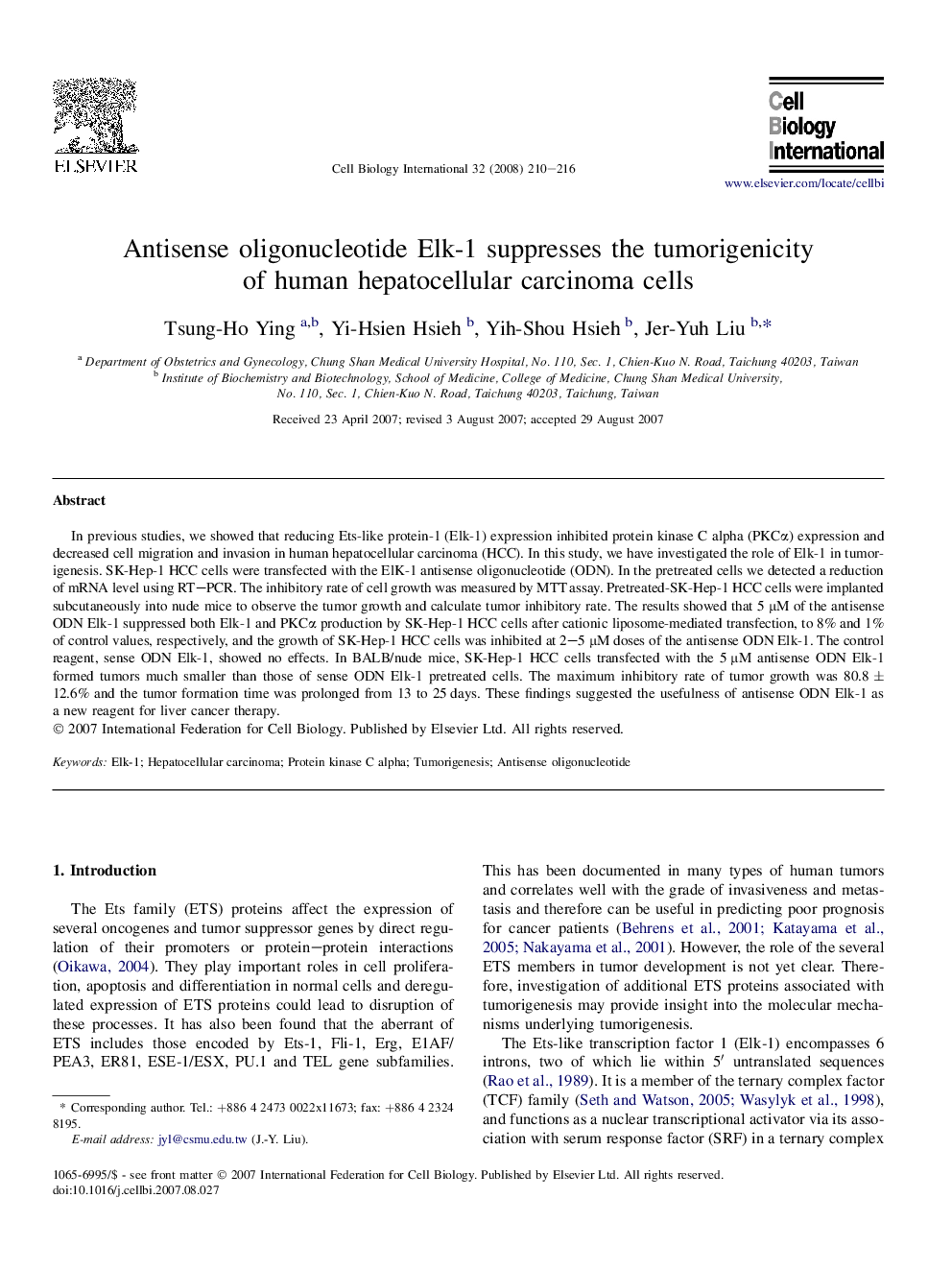| Article ID | Journal | Published Year | Pages | File Type |
|---|---|---|---|---|
| 2067523 | Cell Biology International | 2008 | 7 Pages |
Abstract
In previous studies, we showed that reducing Ets-like protein-1 (Elk-1) expression inhibited protein kinase C alpha (PKCα) expression and decreased cell migration and invasion in human hepatocellular carcinoma (HCC). In this study, we have investigated the role of Elk-1 in tumorigenesis. SK-Hep-1 HCC cells were transfected with the ElK-1 antisense oligonucleotide (ODN). In the pretreated cells we detected a reduction of mRNA level using RT-PCR. The inhibitory rate of cell growth was measured by MTT assay. Pretreated-SK-Hep-1 HCC cells were implanted subcutaneously into nude mice to observe the tumor growth and calculate tumor inhibitory rate. The results showed that 5 μM of the antisense ODN Elk-1 suppressed both Elk-1 and PKCα production by SK-Hep-1 HCC cells after cationic liposome-mediated transfection, to 8% and 1% of control values, respectively, and the growth of SK-Hep-1 HCC cells was inhibited at 2-5 μM doses of the antisense ODN Elk-1. The control reagent, sense ODN Elk-1, showed no effects. In BALB/nude mice, SK-Hep-1 HCC cells transfected with the 5 μM antisense ODN Elk-1 formed tumors much smaller than those of sense ODN Elk-1 pretreated cells. The maximum inhibitory rate of tumor growth was 80.8 ± 12.6% and the tumor formation time was prolonged from 13 to 25 days. These findings suggested the usefulness of antisense ODN Elk-1 as a new reagent for liver cancer therapy.
Related Topics
Life Sciences
Biochemistry, Genetics and Molecular Biology
Biophysics
Authors
Tsung-Ho Ying, Yi-Hsien Hsieh, Yih-Shou Hsieh, Jer-Yuh Liu,
